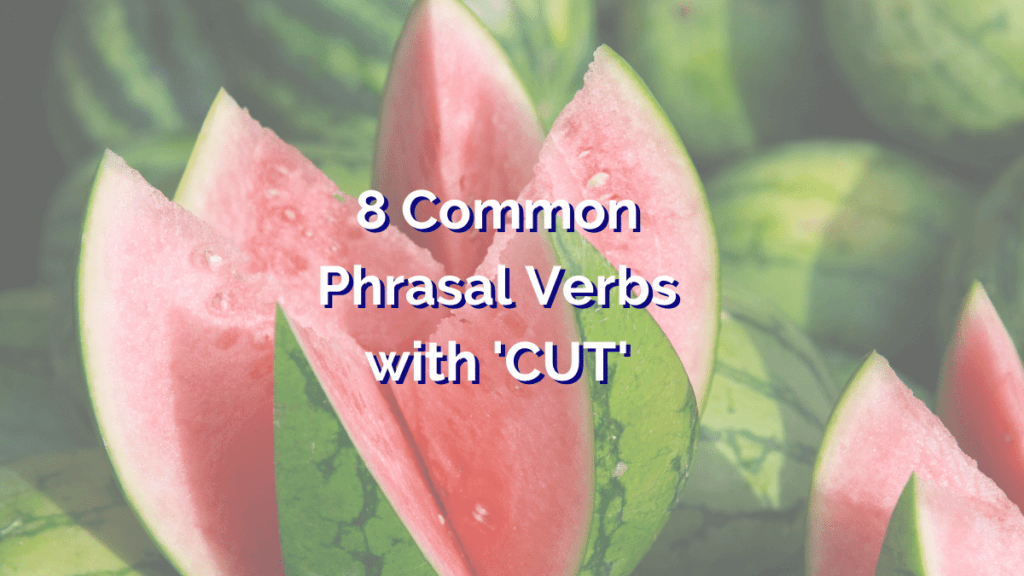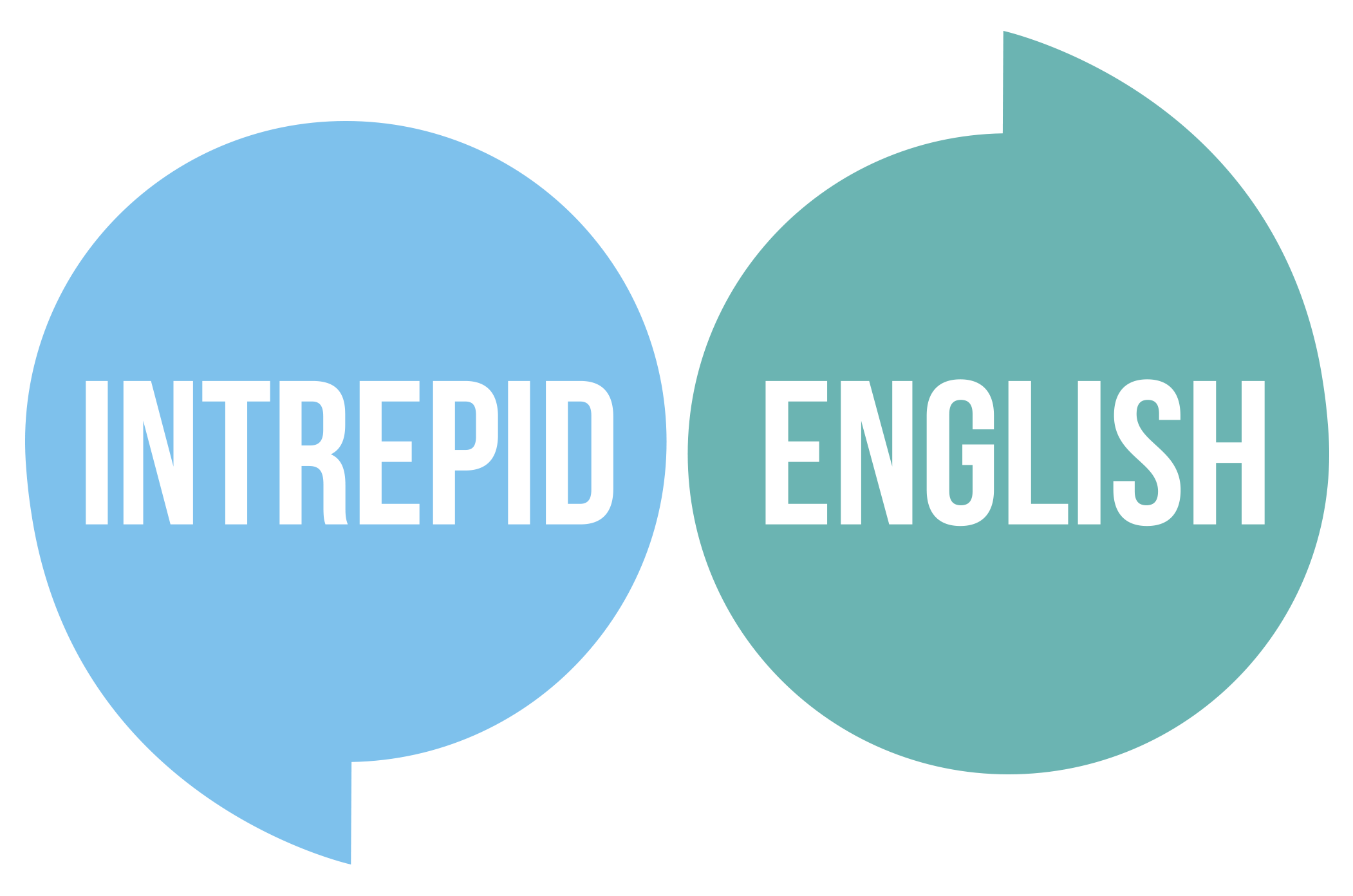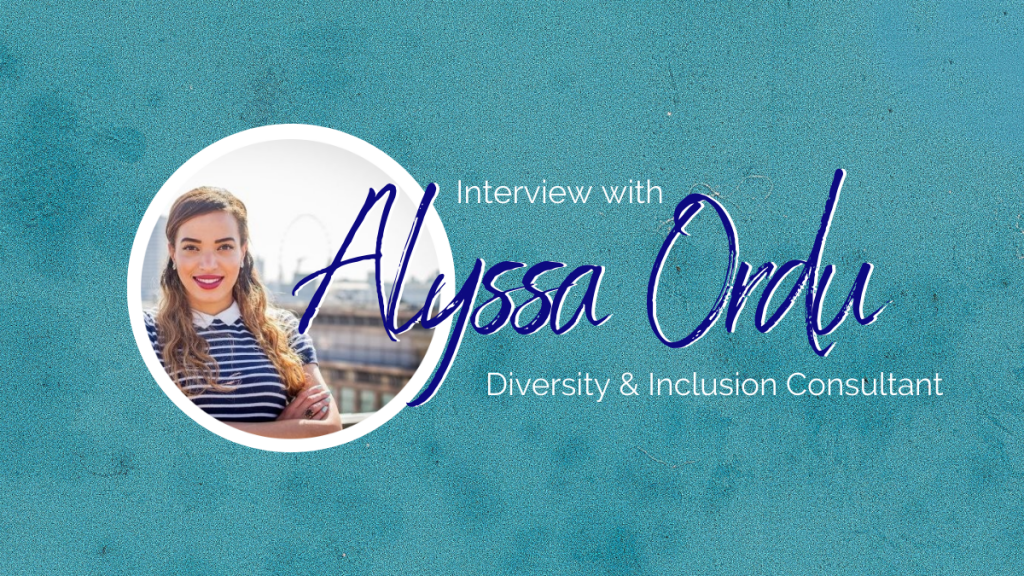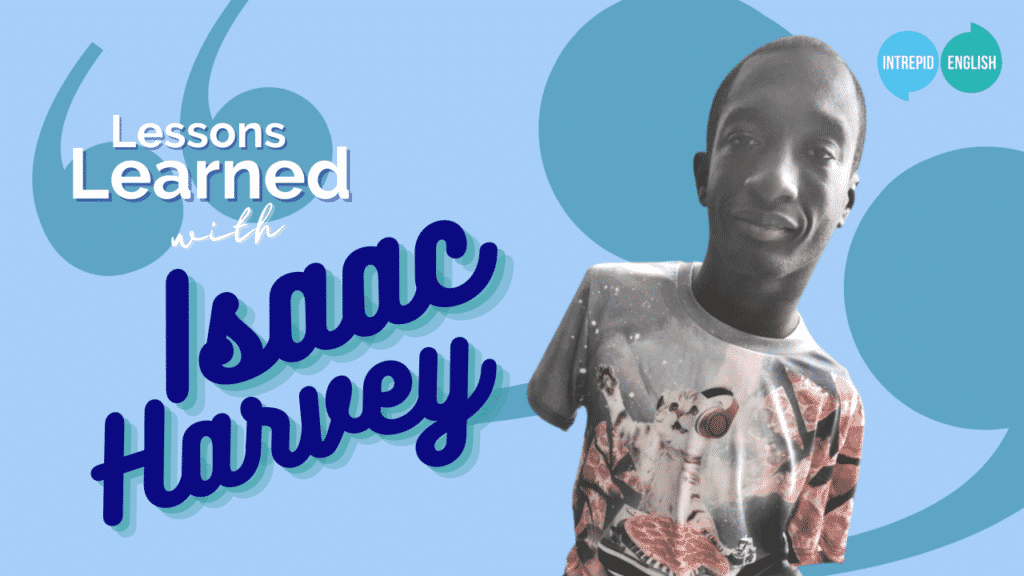8 Common Phrasal Verbs with ‘CUT’

As an English learner, I’m sure you have learned many phrasal verbs to include in your informal conversations in English. So, what is a phrasal verb?
A phrasal verb consists of a root verb (such as go, put or set) and an adverb or preposition (such as away, on or out).
Phrasal verbs are idiomatic, which means that the phrasal verb has a different meaning to the individual words within the phrase.
This blog explains the meanings of eight common phrasal verbs containing the verb cut. To learn more about phrasal verbs, check out the Figure Out Phrasal Verbs course in the Intrepid English Academy. Don’t forget to download your free Phrasal Verbs with ‘Cut’ cheat sheet at the bottom of the blog!
Vocabulary:
Simultaneously (adverb) at the same time.
Reduce (verb) make smaller or less in amount, degree, or size.
Intake (noun) an amount of food, air, or another substance taken into the body.
Exclude (verb) deny (someone) access to a place, group, or privilege.
1. Cut across
There are three different meanings for ‘cut across’:
– To go around an area of land to save time.
e.g. “I cut across the field because I was running late.“
– To pass through or across something.
e.g. “A bridge cuts across the track a few metres ahead.“
– To affect two or more groups simultaneously.
e.g. “These arguments cut across class boundaries and divided the nation.”
2. Cut back
There are three meanings to the phrasal verb ‘cut back’:
– To reduce the amount of money that you spend.
e.g. “We need to cut back on our spending.“
– To start doing or using less of something.
e.g. “I have smoked for 20 years, but I’m trying to cut back.“
– To remove parts of a plant or tree to reduce its size (prune).
e.g. “I had to cut back several branches of my neighbours tree that were blocking the path.“
3. Cut down
There are five ways that we can use the phrasal verb ‘cut down’:
– To reduce the amount of something.
e.g. “The new windows should help cut down on the traffic noise.“
– To start eating, drinking or smoking less of something.
e.g. “You need to cut down your alcohol intake and exercise more if you want to get healthy.”
– To make a piece of writing shorter.
e.g. “My Psychology professor told me that this piece of work needs to be cut down by 100 words.“
– To cut through the main part of a tree.
e.g. We’ve tried to stop them from cutting down the rainforest.
- (literary) When a weapon (usually a sword) cuts people down and kills them.
e.g. “During the Hundred Years’ War, thousands of men were cut down on the battlefield.”
4. Cut in
This is another versatile phrasal verb. It has four main uses.
– To interrupt someone who is speaking.
e.g. “The debate was respectful, apart from the moments when Paul cut in with the occasional sarcastic reply.”
– To drive past a vehicle and move quickly in front of them.
e.g. “The red car cut in right in front of me, officer!”
– When a piece of equipment starts working automatically.
e.g. “The air conditioning cuts in when the temperature goes above 20°C.”
– To allow someone to have part of the profits of something.
e.g. “After persuading them for a full hour, they finally let me cut in on the deal.
5. Cut into
While this phrasal verb is very common, it only has two main meanings.
– To reduce the amount of something.
e.g. “The long working hours really cut into my leisure time.“
– To interrupt an activity or process.
e.g. “A loud bang on the door cut into his thoughts.“
6. Cut off
There are many meanings to the phrasal verb ‘cut off’. Here are 5 of them.
– To remove something by cutting it.
e.g. “I decided to cut off my long hair and dye it purple!”
– To stop something from going somewhere.
e.g. “The police cut off the burglars’ escape route.”
– To make a place difficult or impossible to enter.
e.g. “The town was completely cut off for four days because of flooding.”
– To prevent someone from leaving a place.
e.g. “He was secluded and cut off from the outside world.“
– To refuse to allow someone to get your money.
e.g. “Her grandfather cut her off before he died.“
(Bonus fact: If you’re in a bar and you’ve drank too much the bartender can refuse to serve you anymore, thereby cutting you off. For example: You’ve had too much to drink, I will have to cut you off.)
7. Cut out
This phrasal verb has nine common meanings! I’ve listed some of them below. To find out more meanings, check out the Figure Out Phrasal Verbs course in the Intrepid English Academy.
- To remove something from a larger piece of something.
e.g. “I cut out this newspaper article for you because I know you like that celebrity.”
- To remove parts from something such as a piece of writing.
e.g. “They’ve cut out six scenes from my script. I can’t believe it!”
- To stop eating or doing something (usually for health reasons).
e.g. “I’ve cut out sugar from my diet. Ooh, are those cookies?”
- To stop doing something that someone finds annoying.
e.g. You’re chewing too loudly – cut it out!
8. Cut through
There are two meanings to the phrasal verb ‘cut through’:
– To go through an area rather than go around it.
e.g. “He decided to cut through the forest but he ended up getting lost.”
– To move quickly and smoothly through something.
e.g. “The German striker cut through the Spanish defence and scored a goal.“
Don’t forget to download your free Phrasal Verbs with ‘Cut’ cheat sheet right here.
This content was written and recorded by Intrepid English Teacher Thomas.

You can find out more about Thomas on his Intrepid English Teacher Profile Page.
Book a free trial lesson today to discuss this topic in more detail, and talk about your English learning goals with an experienced and friendly native English teacher.
If you have any questions, or you would like to request a topic for a future blog, you can contact us using the chat box, send us an email, or even drop us a message on any of our social media channels.







Responses